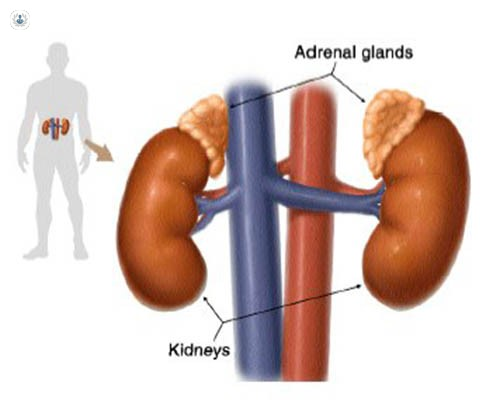What we need to know about adrenal gland disorders
Escrito por:The adrenal glands, small but vital structures located atop each kidney, play a crucial role in producing hormones that regulate various bodily functions. Disorders of these glands can significantly impact overall health. This article explores common adrenal gland disorders, their symptoms, causes, and treatments. Here to explain more in this article below is highly revered diabetes, endocrinology, and general internal medicine consultant, Dr Dulmini Kariyawasam.

Types of adrenal gland disorders
Addison's disease occurs when the adrenal glands produce insufficient amounts of cortisol and aldosterone. This condition often stems from an autoimmune response that damages the adrenal cortex. Symptoms include chronic fatigue, muscle weakness, weight loss, low blood pressure, and skin pigmentation changes. Treatment typically involves hormone replacement therapy to compensate for the deficient hormones.
Cushing's syndrome results from prolonged exposure to high cortisol levels. This disorder can be due to long-term use of corticosteroid medications or adrenal tumors that produce excess cortisol. Common symptoms include weight gain, particularly around the abdomen and face, thinning skin, easy bruising, and high blood pressure. Treatment options include reducing corticosteroid use, surgical removal of tumours, or medications to control cortisol production.
Congenital adrenal hyperplasia is a group of inherited genetic disorders that affect adrenal gland hormone production. The most common form involves a deficiency in the enzyme 21-hydroxylase, leading to an imbalance in cortisol and aldosterone levels. Symptoms in infants can include ambiguous genitalia in females and salt-wasting CAH. Lifelong hormone replacement and careful management are essential for individuals with CAH.
Symptoms of adrenal gland disorders
Symptoms of adrenal gland disorders can vary widely depending on the specific condition but often include fatigue, muscle weakness, changes in skin pigmentation, and weight fluctuations. Other symptoms may involve abnormal blood pressure, digestive issues, and mood swings.
Diagnosing adrenal gland disorders
Diagnosis typically involves a combination of blood tests, urine tests, and imaging studies to assess hormone levels and adrenal gland structure. Endocrinologists, specialists in hormone-related disorders, play a key role in diagnosing and managing these conditions.
Treatment and management
Treatment strategies depend on the specific disorder and its underlying cause. Hormone replacement therapy is common for conditions like Addison's disease and CAH. In cases of Cushing's syndrome, addressing the excess cortisol production through medication or surgery is crucial. Regular monitoring and adjustments in treatment plans are essential for effective management.


